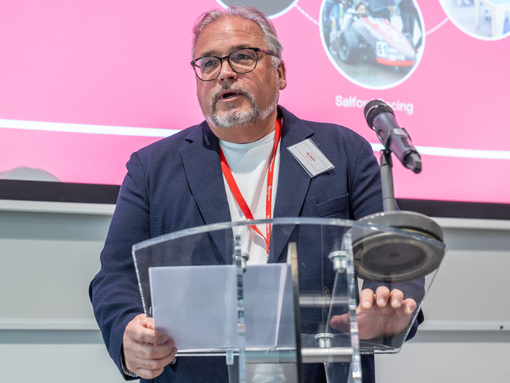
Radical New 'Self-Eating Rocket' Propulsion Project Gains Funding
A radical new rocket propulsion system has won £90,000 of support from the UK MoD’s Defence and Security Accelerator (DASA).
The new technology, known as ‘autophage engines’ involves the body of the rocket being made out of the propulsion fuel and ‘eaten’ during takeoff. The rocket burns a solid propellant rod that doubles as the rocket body itself. A rigid tube of polyethylene fuel encloses a core of powdered oxidiser. This “propellant rod” is forced into the rocket engine where the two components are separated, vaporised, mixed and burned to create thrust. The engine will have consumed the entire body of the rocket by the time the assembly reaches orbit, meaning there is no wastage.
Wastage is a challenge for the space industry since the rocket boosters that carry the fuel are often jettisoned and not reused.
It is claimed that the autophage engine, which is being built at the Glasgow University’s James Watt School of Engineering – could be used to launch payloads from spaceports across the UK. Autophage engines have already been test-fired by the team using all-solid propellant. The new funding will underwrite the research required to use a more energetic hybrid propellant and the engine will be test-fired at Kingston University’s new rocket laboratory in London next year.
Dr Patrick Harkness, of the James Watt School of Engineering, said:
“The autophage concept is simple, burn the tanks as well. That saves the excess mass, and it means that we can miniaturise the vehicle without hitting this wall. The demand for the types of launches opened up by the technology could reach as many as 3,000 a year by 2025 – a potential global market value of £100m. The UK has a strategic aim to secure 10 per cent of the worldwide space industry by 2030, and we believe that our autophage engine is uniquely well-placed to help deliver on that ambition. We’re looking forward to continuing our work to develop the engine and help the UK find its place in space.”
The team believe the technology holds great promise for launching small payloads from the UK, getting around the problem of sometimes having to wait a lengthy period of time for the usage of larger rockets that are commonly launched from the USA.
The technical development of the engine is being conducted by Krzysztof Bzdyk, who recently joined Glasgow University from NASA. He said:
“The engine has to run hot enough to vaporise the fuel tube, but at the same time not destroy itself in service. We will use the cold fuel tube coming into the engine as means of controlling temperature, in a process called regenerative cooling. But even so, the test article will have to be made of exotic materials, like tungsten and graphite, at least until we fully understand the temperatures inside.”













